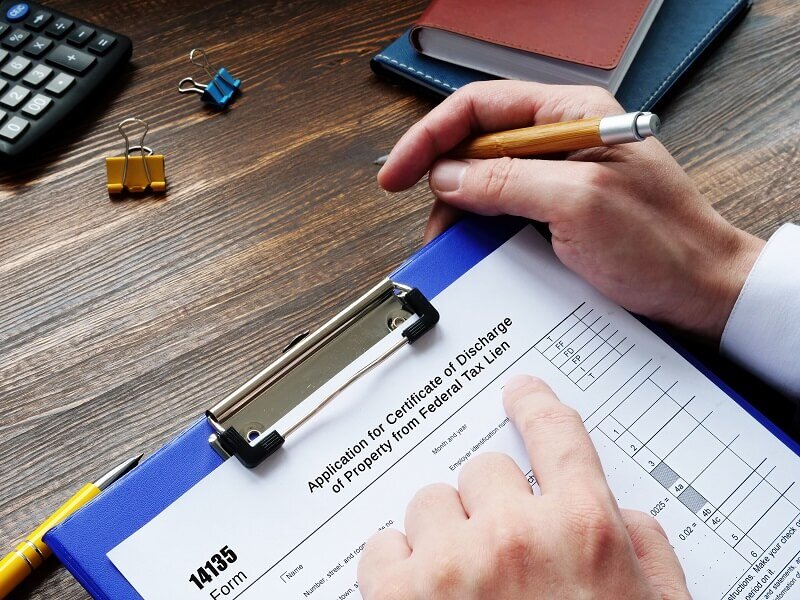
Selling a house with a lien attached is intimidating and confusing. You may be wondering, should I sell my house with a lien?
A tax lien is a legal claim imposed by the government on a person’s assets when they fail to pay taxes owed. It is used as a last resort to collect unpaid taxes and gives the government a security interest in the property until you pay the debt off. The lien protects the government from other creditors who may have claims against the taxpayer’s assets.
If you’re in Tennessee looking to sell your home but have a tax lien certificate, you may feel overwhelmed by the prospect of navigating the situation. Don’t worry – there is hope! We buy houses in Memphis with a lien attached.
This blog post will discuss what it means to have a lien as a property owner, how to clear the title, and tips for making the selling process more manageable.
How to Sell a House with a Tax Lien
Selling a house with a tax lien can be done, but it requires some extra steps. In general, these are the steps involved:
- Perform a title search to see the liens on your property
- Pay off the lien or negotiate with the buyer to do so
- Request a certificate of discharge
- Be aware of the risks and benefits associated with tax lien investing before proceeding
- Contact a tax attorney for guidance
Different Types of Tax Liens
Various tax liens exist. A lien gives a creditor the legal right to take possession of your property to pay off the debt.
Mortgage Lien
A mortgage lien is a right that gives an individual or entity a claim to collateral until you pay outstanding debt. When someone takes out a mortgage loan, they agree that the home they are purchasing will act as collateral for the loan.
If the homeowner fails to make payments, the mortgage lender takes possession of the property and sell it to recoup their losses. This is called foreclosure.
Judgment Lien
A judgment lien is a court ruling that gives a creditor the right to take possession of your property if you fail to fulfill your financial obligations.
If someone wins a lawsuit against you and records a money judgment against your property, this creates a judgment lien. The creditor collects the debt from the sale proceeds if you sell your property.
Attachment Lien
An attachment lien is a legal charge to take ownership of the defendant’s property to satisfy a debt. A creditor obtains it by the levy of a writ of attachment, which allows the lien to go through should the defendant fail to pay their debt.
The writ of attachment is a tool for creditors, as it enables them to take ownership of the debtor’s property before they have been awarded a judgment in court.
Estate Tax Lien
An estate tax lien is a legal claim imposed by the IRS on the property of a deceased person’s estate. It attaches at the time of death and helps the IRS collect any estate taxes that may be due.
The lien applies to all the assets in the decedent’s gross estate, including real property, mineral rights, and personal property.
Corporate Franchise Tax Lien
A corporate franchise tax lien is a legal claim placed on a corporation’s property by the state in which it operates. This state tax lien secures payment of taxes owed to the state. It gives the state a priority claim over other creditors and allows them to seize and sell the corporation’s assets if necessary to satisfy the tax bill.
Federal Tax Lien
A federal tax lien is a legal claim against your property by the Internal Revenue Service (IRS) when you fail to pay your income taxes. The lien protects the government’s interest in your property, including real estate and personal and financial assets. It allows the IRS to take legal action to collect what you owe if necessary.
When a federal tax lien is in effect, it may be difficult for you to obtain credit or sell your property. The lien also applies to future assets acquired during the duration of the lien.
Mechanic’s Lien
A mechanic’s lien is a legal tool that provides the creditor with a security interest in the property. It guarantees payment to builders, contractors, and construction firms that build or repair structures.
Mechanic’s liens create a cloud on title, which means they appear in public property records and are said to “travel with the land,” meaning that anyone who buys the property must pay off the lien before taking full ownership.
Vendor’s Lien
A vendor’s lien is a legal claim that allows a seller to take back the property if the buyer does not pay the total purchase price. It applies to personal property and real estate and is used as a form of security for unpaid debt.
The seller repossesses the property under certain circumstances, such as when payments are late or incomplete. It is used as a security for an unpaid debt of ownership and provides the seller the right to reclaim their property if payments are not made in full.
Liens hassling you? Sell a house fast in Bartlett to get an all-cash offer.
Property Tax Lien
A property tax lien is a legal claim against an individual’s assets for unpaid property tax. A property tax lien makes a legal claim on the property, giving the holder of the lien priority over other creditors in collecting payment from the debtor. The lien secures payment of taxes and prevents any transfer or sale of the property until all taxes are paid.

How to Remove Tax Liens on Your House
If you have an IRS tax lien on your house, it’s crucial to understand how to remove it. Tax liens are placed by the lien holder when you owe back taxes and is a significant obstacle if you’re trying to refinance or sell your home.
Fortunately, there are several options available for removing tax liens from your house:
- Pay off the total amount of the debt you owe. This will immediately release the lien and allow you to refinance or sell your home.
- Set up an installment payment plan with the IRS. This will enable taxpayers to make repayments until they fully pay the debt and avoid a tax lien sale. Once all payments are complete, the lien releases, and you move forward with refinancing or selling your home.
- Negotiate an offer in compromise (OIC) with the IRS. An OIC allows taxpayers who cannot pay their entire tax debt to settle for less than they owe. If accepted by the IRS, this will result in a release of the lien and allow taxpayers to move forward with refinancing or selling their homes.
- Request a discharge by submitting Form 12277 (Application for Withdrawal) to the IRS. If approved, this will release the lien and allow taxpayers to move forward with refinancing.
Selling a House With a Tax Lien Still Attached
A home sale with a tax lien attached is possible but is complicated. The first step is to request a certificate of discharge from the IRS. This will only partially resolve the lien but will help make the process easier.
You may also need to negotiate with the buyer to get them to agree to take on the lien. If you are selling your house for less than the amount of the lien, ask the IRS to discharge the lien so that you can complete the sale.
Is It Better To Get the Tax Lien Removed Before Selling
For sellers, removing the tax lien before the sale will ensure they receive full payment for their property. If there is an outstanding balance on the lien at closing, the creditor deducts the amount from the seller’s sale proceeds.
Some states require that all liens be satisfied before the transfer of title. Failure to do so could result in penalties or fines for the seller.
Conclusion
Selling a house with a tax lien attached to it in Tennessee is possible, but specific steps must be taken before the sale is finalized.
The easiest option is pay the delinquent tax by paying the debt in full. If this is not an option, you may need to negotiate with the buyer and have them pay off the lien as part of their purchase agreement.
Another option is to dispute the tax lien with the IRS or another creditor. If this is unsuccessful, request a discharge certificate from the IRS or another government entity. This will allow you to go ahead with the sale of your home.
If all else fails, you may need to wait until after a property tax sale and take advantage of the post-sale redemption period to regain ownership of your home and proceed with its sale.
Selling your home with a tax lien to a cash buyer is possible but requires some extra steps. You must dispute the tax lien with the IRS or other government entities if the debt isn’t yours. If it is yours, request a certificate of discharge from the IRS or satisfy the delinquent tax. Otherwise, negotiate with the buyer to pay off the lien from the sale proceeds.
Avoid the headache of dealing with liens, real estate agent commissions, and other closing costs. Consider contacting cash home buyers in Tennessee.
